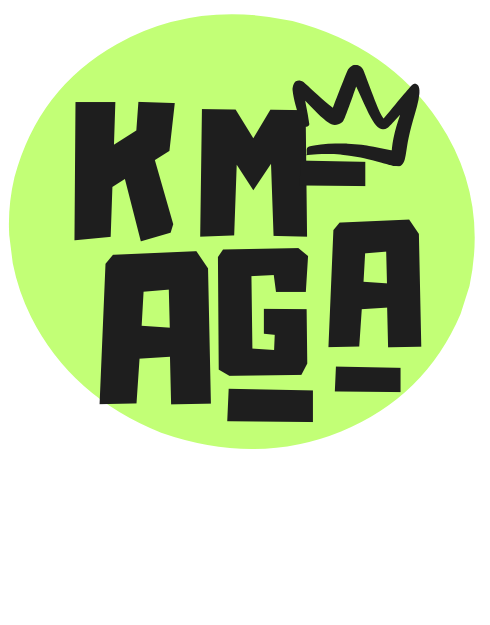Alcohol is a common part of many social interactions and personal experiences. Yet, behind the fun and relaxation it brings lies a complex relationship with health. The medical community often uses specific terminology to describe alcohol consumption, one of which is E.T.O.H. This abbreviation for ethyl alcohol may seem simple at first glance, but its implications are far-reaching.
Understanding what E.T.O.H represents can help demystify conversations around alcohol use and its effects on our bodies. Whether you’re curious about how it impacts your health or seeking insights into treatment options for alcohol-related issues, you’re in the right place. Let’s dive deeper into this important topic together and uncover the layers that define E.T.O.H in both medical terms and everyday life.
Understanding Medical Terminology
Medical terminology serves as a universal language for healthcare professionals. It allows precise communication about conditions, treatments, and medications.
Understanding this language can seem daunting at first. However, breaking down complex terms into their roots makes it more manageable. For example, prefixes often indicate location or time, while suffixes usually specify conditions or procedures.
In the context of alcohol use, knowing terms like E.T.O.H is crucial. This abbreviation highlights ethyl alcohol’s role in various medical discussions.
Moreover, familiarity with medical lingo empowers individuals to engage more effectively with their healthcare providers. It facilitates informed decisions regarding health and wellness issues related to substance use and abuse.
The clarity that comes from understanding these terms can lead to better outcomes in treatment and overall health management.
The Origin of E.T.O.H
E.T.O.H stands for ethyl alcohol, a term derived from its chemical composition. Ethanol is the type of alcohol found in beverages like beer, wine, and spirits.
The terminology has roots in both chemistry and medicine. It became necessary to use standardized terms to discuss substances that can affect health significantly.
Medical professionals adopted E.T.O.H as a shorthand reference. This helped streamline communication regarding alcohol-related issues in clinical settings.
Understanding this origin plays a vital role today, especially when addressing alcohol’s impact on individuals. The abbreviation serves not just as jargon but also encapsulates the serious implications of excessive consumption on physical and mental health.
As awareness around substance use grows, so does the relevance of such terms in conversations about treatment and recovery.
The Effects of Alcohol on the Body
Alcohol impacts various systems in the body, and its effects can be profound. When consumed, it enters the bloodstream quickly, affecting brain function almost immediately. This leads to changes in mood, behavior, and cognition.
The liver takes on the challenge of metabolizing alcohol. Over time, excessive use can lead to fatty liver disease or even cirrhosis. Both conditions affect how your body processes nutrients and detoxifies itself.
Cardiovascular health is also at risk. Heavy drinking may result in high blood pressure and irregular heartbeats. These factors increase the likelihood of serious complications like stroke.
Furthermore, alcohol can disrupt hormonal balance. It affects insulin sensitivity which might contribute to weight gain or diabetes over time.
Long-term consumption compromises immune function too. This makes you more susceptible to infections and illnesses that would typically be manageable for a healthy individual.
Common Medical Terms Related to Alcohol Use
Understanding common medical terms related to alcohol use can significantly enhance awareness and communication regarding health.
“Alcoholism” refers to the chronic dependence on alcohol, impacting both physical and mental health. This condition often requires professional intervention for effective management.
Another important term is “binge drinking.” It describes consuming large quantities of alcohol in a short time frame, increasing risks like accidents or long-term health issues.
“Withdrawal symptoms” arise when someone who regularly consumes alcohol suddenly reduces intake. These symptoms can range from anxiety to severe complications, necessitating medical attention.
The term “cirrhosis” relates specifically to liver damage caused by excessive drinking over time. This serious condition emphasizes the impact of prolonged alcohol abuse on bodily functions.
Lastly, “detoxification” is the process through which individuals cleanse their bodies of toxins associated with substance use. Understanding these key terms fosters better discussions about E.T.O.H and its effects on well-being.
How E.T.O.H Can Affect Overall Health

E.T.O.H, or ethanol, is the active ingredient in alcoholic beverages. Its impact on health can be profound and multifaceted.
Short-term use may lead to impaired judgment and coordination. This increases the risk of accidents and injuries. Chronic consumption often results in liver damage, with conditions like fatty liver disease and cirrhosis being significant concerns.
Mental health risks are also notable. Alcohol can exacerbate anxiety and depression symptoms, leading to a vicious cycle of reliance for temporary relief.
Cardiovascular problems may arise as well. Regular heavy drinking elevates blood pressure and contributes to heart disease over time.
Additionally, addiction issues create barriers to personal relationships and career growth. This social isolation further compounds mental health struggles, forming an intricate web of challenges that many face due to E.T.O.H consumption.
Treatment and Recovery Options for Alcohol Abuse
Treatment for alcohol abuse often begins with detoxification. This process helps the body rid itself of alcohol while managing withdrawal symptoms. Medical supervision can make this transition safer and more comfortable.
After detox, therapy plays a critical role in recovery. Cognitive-behavioral therapy (CBT) is popular because it addresses harmful thought patterns associated with drinking. Group therapy also provides support and accountability from others who share similar struggles.
Medications may be prescribed to help reduce cravings or ease withdrawal symptoms. Naltrexone and acamprosate are examples that have shown effectiveness for many individuals.
Support groups like Alcoholics Anonymous offer community-based solutions where people can connect and share their journeys to sobriety. These resources create a sense of belonging, which can be vital during recovery.
Integrating lifestyle changes, such as nutrition and exercise, further enhances the healing process by promoting overall well-being.
Conclusion
Understanding medical terminology is key to navigating discussions about health. E.T.O.H, a shorthand for ethanol or ethyl alcohol, is a term often used by healthcare professionals. It serves as a clear label that signifies the substance responsible for both recreational enjoyment and potential harm.
The origin of E.T.O.H traces back to various scientific disciplines that studied alcohol’s effects on the body over centuries. This abbreviation simplifies complex conversations around alcohol consumption, making it easier for practitioners to communicate risks and treatment options efficiently.
Alcohol affects nearly every system in the human body. From liver damage to brain function impairment, its impact is profound and far-reaching. Understanding these consequences helps individuals make informed choices about their drinking habits.
Several medical terms commonly associated with alcohol use include alcoholism, binge drinking, withdrawal syndrome, and detoxification. A grasp of these terms can provide insight into not only personal behaviors but also broader societal issues related to alcohol consumption.
E.T.O.H influences overall health significantly. Chronic use can lead to numerous health problems including cardiovascular disease, liver cirrhosis, and mental health disorders like depression or anxiety. Awareness of these effects encourages more mindful drinking practices among individuals.
Treatment options for those facing challenges with E.T.O.H vary widely from counseling programs to medication-assisted therapies. Recovery can be an ongoing journey requiring support from healthcare professionals and loved ones alike.
Understanding E.T.O.H empowers people toward healthier lifestyles while fostering open dialogues about the impacts of alcohol on our lives.

